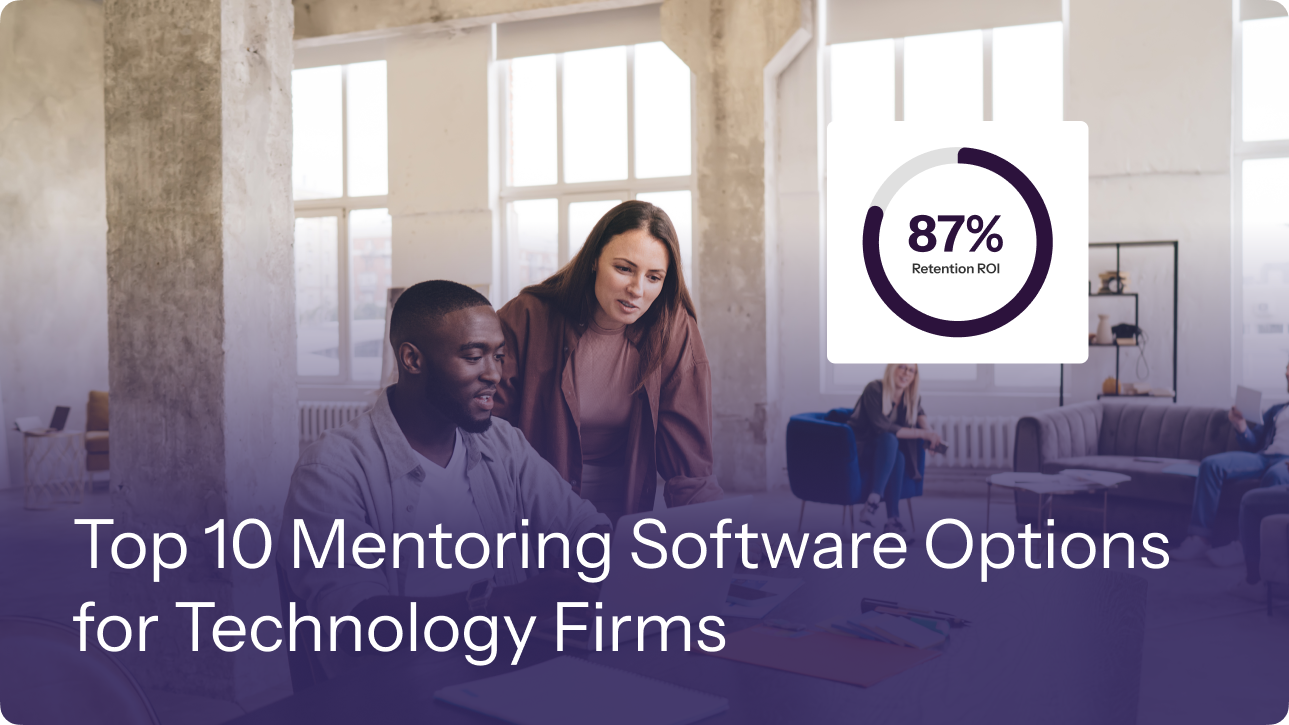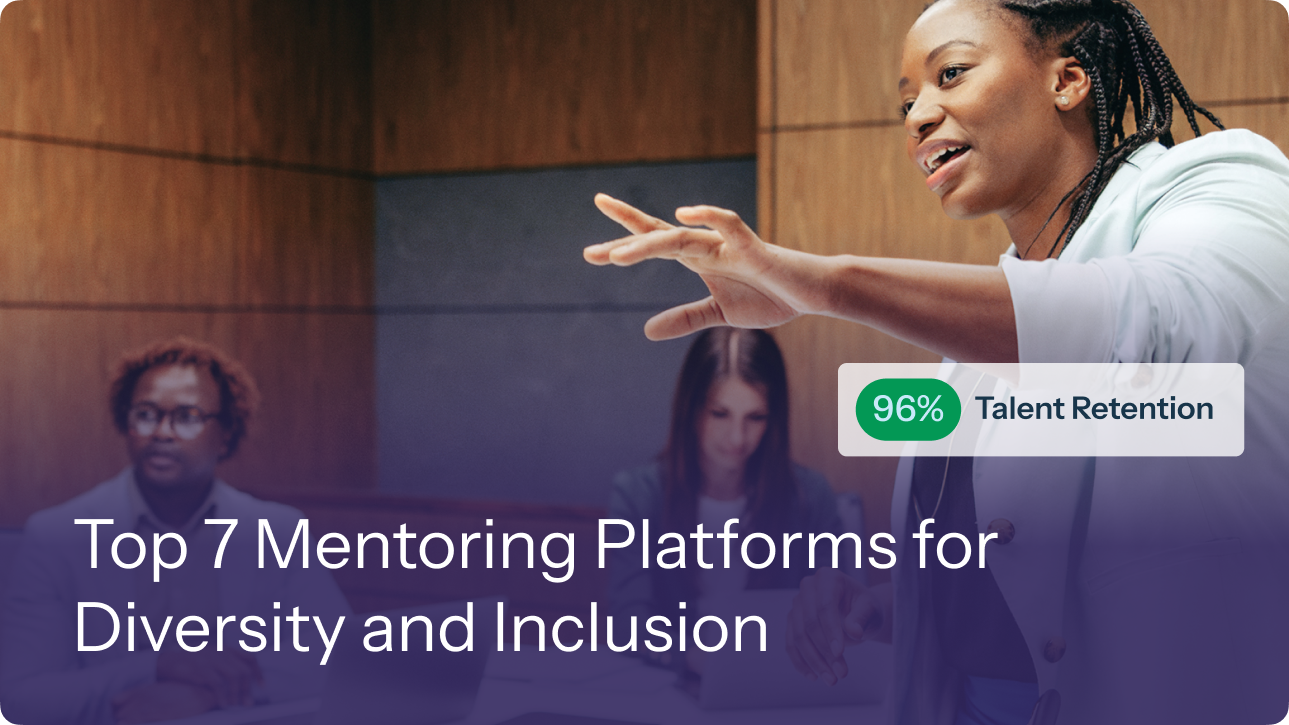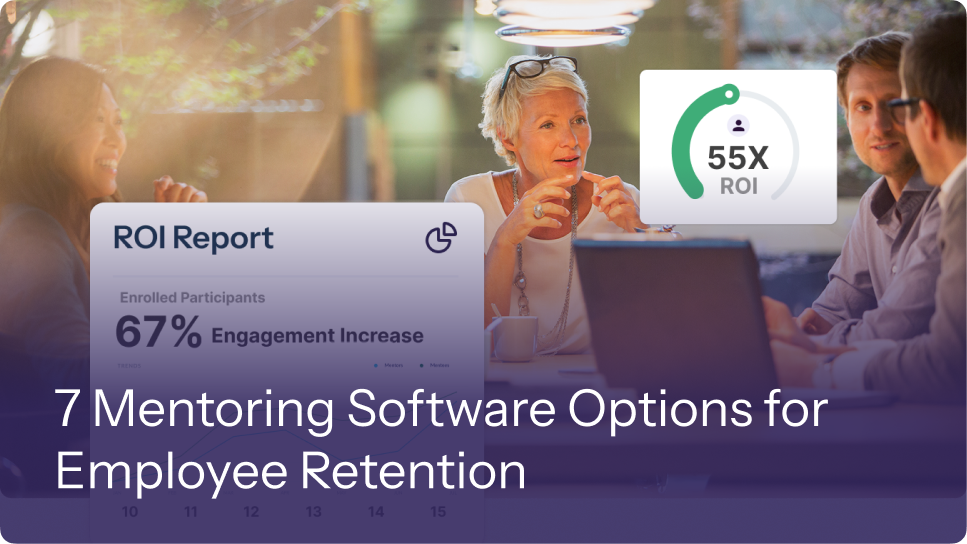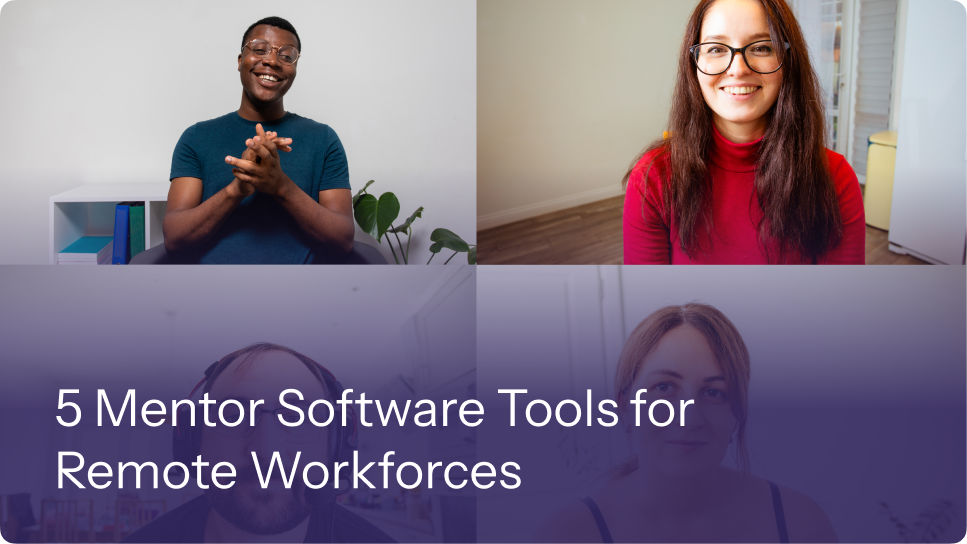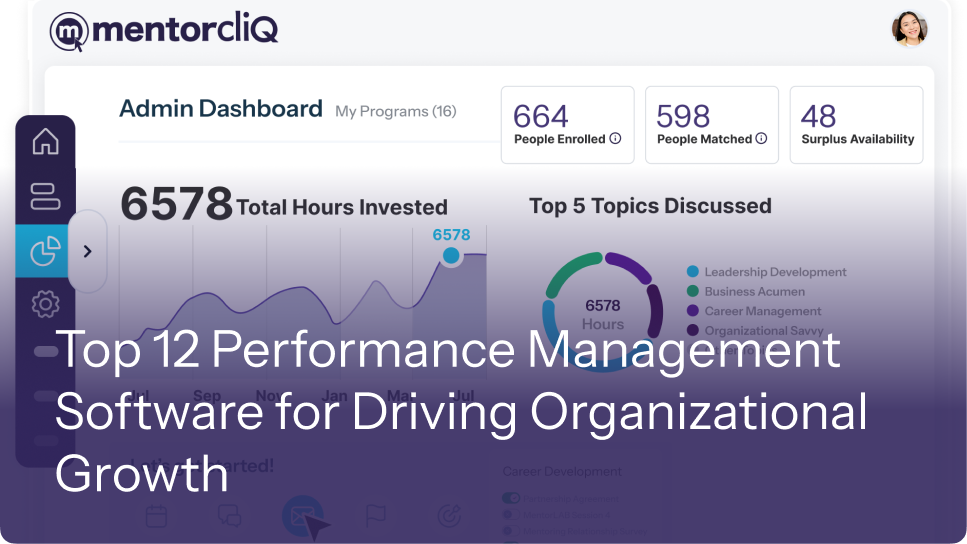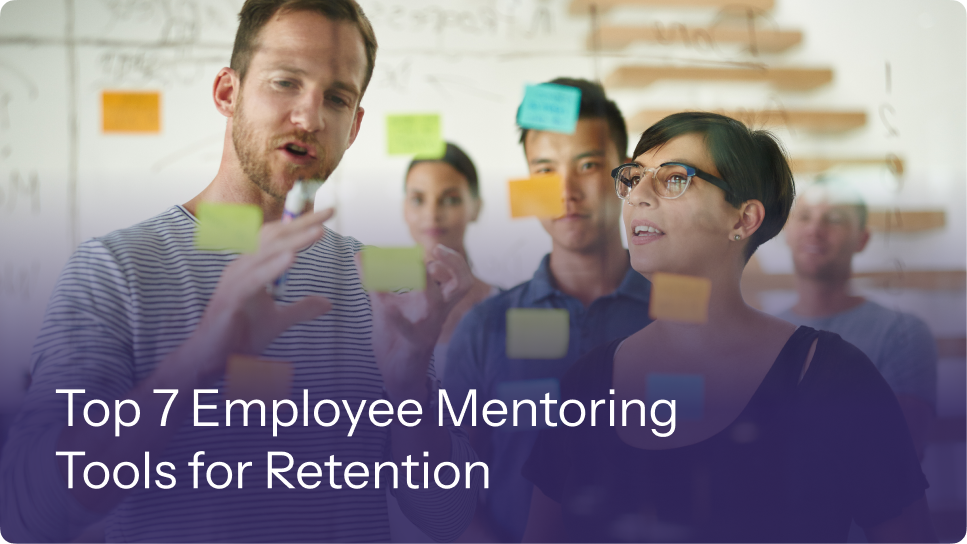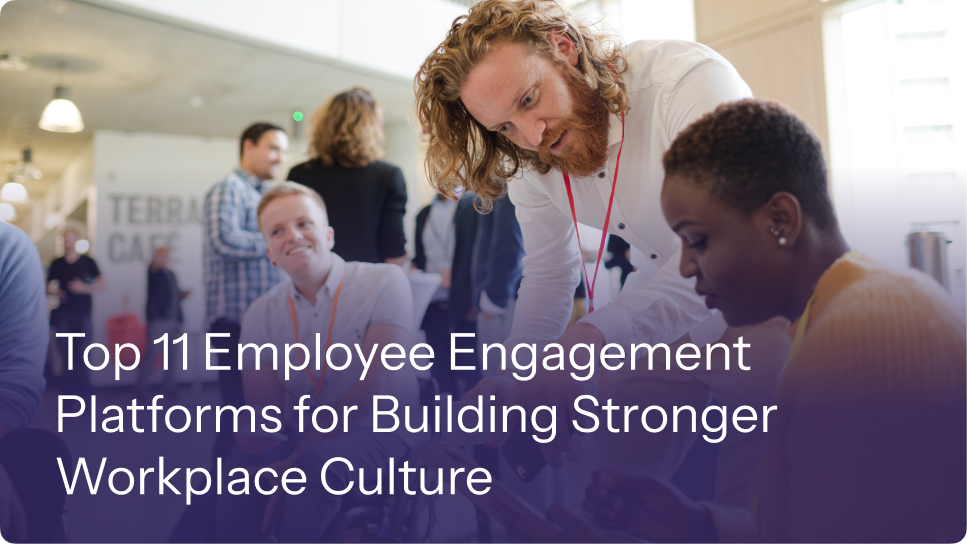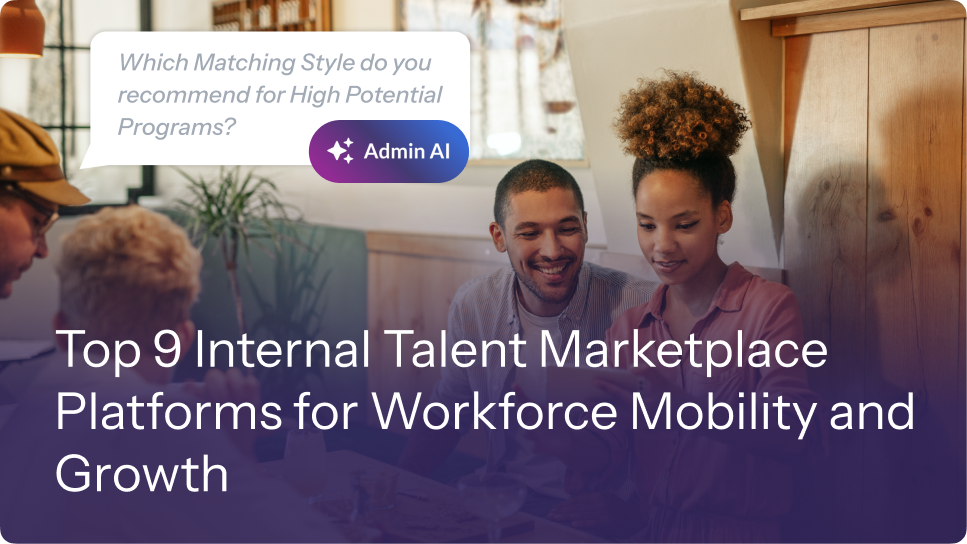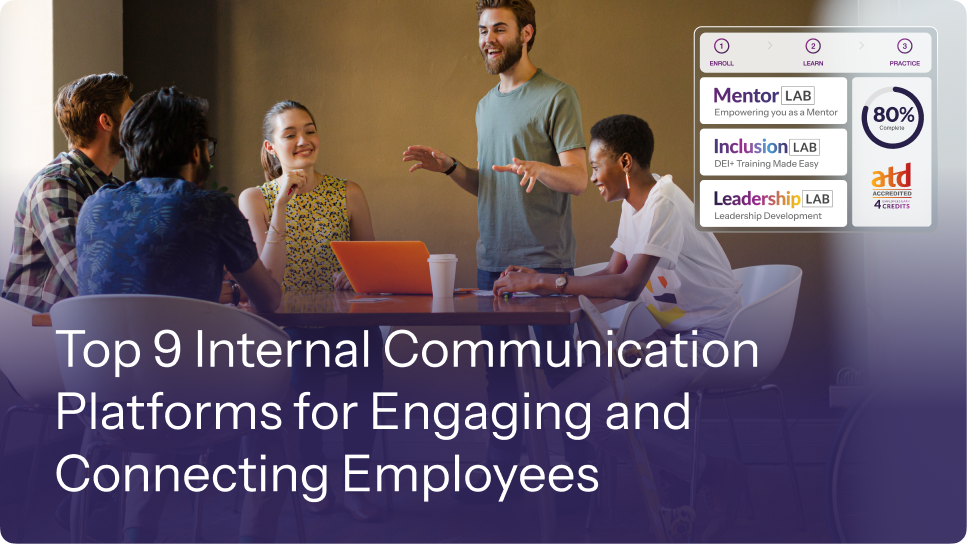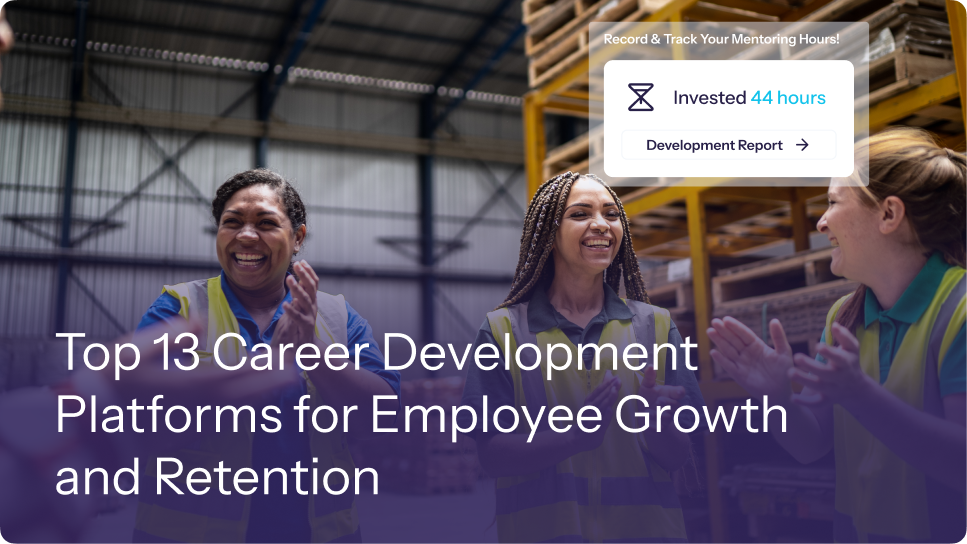Enterprise technology leaders need mentoring at scale—spanning engineering, product, data, and global operations. You need structured programs, rigorous privacy controls, and integrations that reduce admin time. The right platform also connects mentoring to measurable outcomes such as retention, internal mobility, and manager effectiveness.
Mentoring is now mainstream among the largest companies. As of 2024, 98% of US Fortune 500 companies run mentoring programs. Companies with mentoring also show materially stronger business performance than those without.
When selecting software, prioritize proven enterprise deployments, security posture, and analytics that quantify mentoring’s impact on your talent strategy.
What Is Mentoring Software?
Mentoring software is a digital system that matches people for development-focused relationships and guides their progress with workflows, resources, and analytics. In practice, it operationalizes “mentoring”—a relationship in which an experienced person advises and supports a less experienced person.
Key Features of Mentoring Software You Should Look For
A strong enterprise solution standardizes mentoring at scale while fitting into your security, data, and collaboration stack. Focus on these core capabilities.
Smart Matching & Program Design
Look for configurable criteria—skills, role, career goals, ERG membership, location—and support for formats such as 1:1, group, reverse, and peer mentoring. Templates and playbooks speed launch and consistency.
Secure Integrations & SSO
Enterprise rollouts depend on SSO, HRIS integrations, and collaboration tools (e.g., Teams/Slack, calendar). Open APIs help automate enrollment and data syncs.
Multi-Program Scale & Governance
Run concurrent cohorts across regions and functions with role-based access, approvals, and audit trails. Support ERG, onboarding, leadership, and technical pathways.
Analytics & Outcomes
Dashboards should track enrollment, match quality, session activity, feedback, skills, mobility, and retention signals—so you can report ROI to executives.
Participant Experience
Mobile-friendly UX, nudges, agendas, and resource libraries drive engagement for busy engineers and leaders, reducing drop-off.
Data Privacy & Compliance
Expect enterprise-grade security and data protection aligned to your standards and regions.
10 Best Mentoring Software Options for Technology Firms
1. MentorcliQ
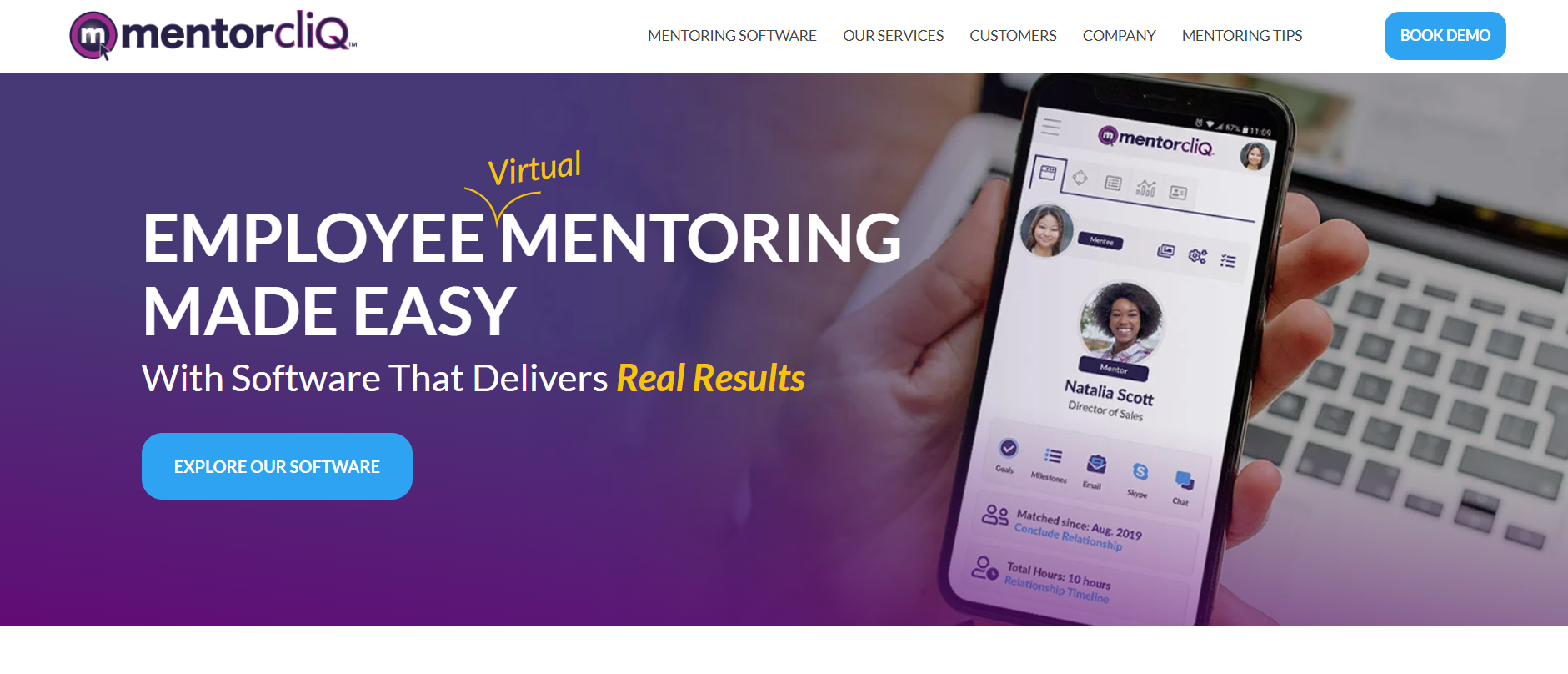
MentorcliQ is an industry-leading enterprise mentoring platform trusted by global enterprises. It supports multiple program types, robust admin controls, and analytics that tie mentoring to retention and mobility. SMART matching, SSO/HRIS integrations, and an enterprise security posture reduce manual administration and help L&D and ERG leaders scale quickly.
Key Features:
- SMART Matching & Templates: Configurable criteria and program playbooks streamline setup for technical and leadership paths.
- Enterprise Integrations: SSO and HRIS connectivity automate enrollment and reporting.
- Outcome Analytics: Track engagement and program impact for executive reporting.
Best for: Global enterprises seeking comprehensive, scalable mentoring with strong analytics.
2. Chronus
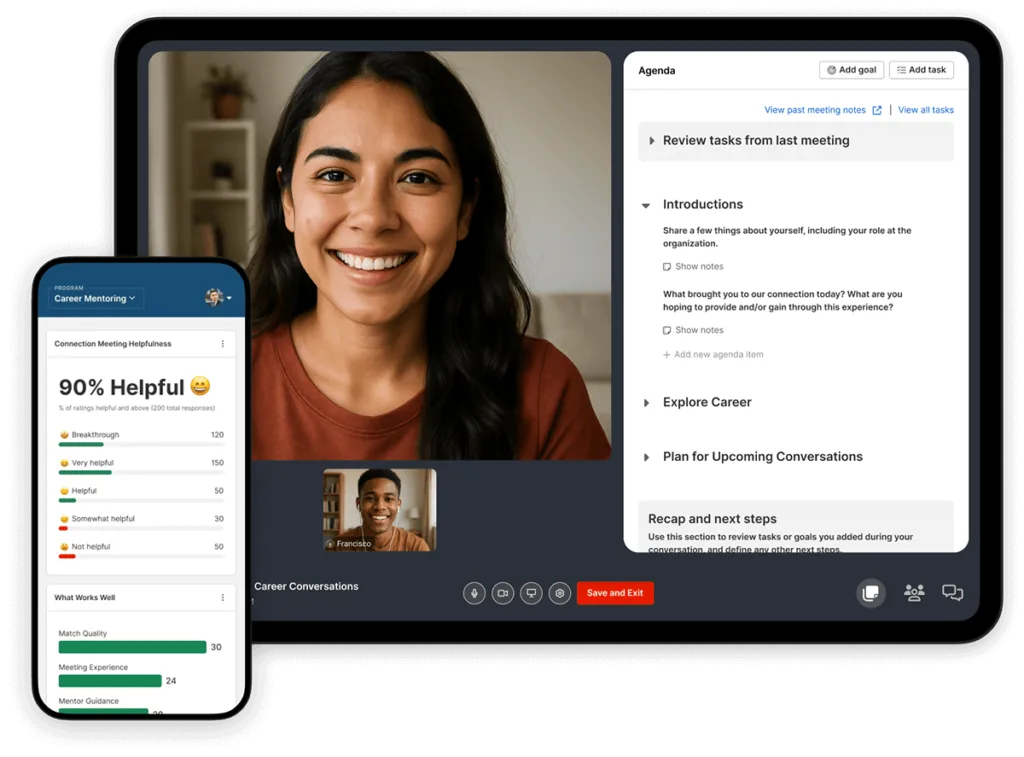
Chronus offers an enterprise-ready platform with deep integrations and matching tools built to fit into daily work. It’s designed for scale and governance across multiple programs.
Key Features:
- Flow-of-Work Integrations: Connects with collaboration and HR systems to reduce friction.
- Configurable Matching: Weight skills and goals for better mentor-mentee fit.
- Guided Experience: Program workflows and resources for consistency.
Best for: Enterprises prioritizing integration depth and program governance.
3. Together Platform
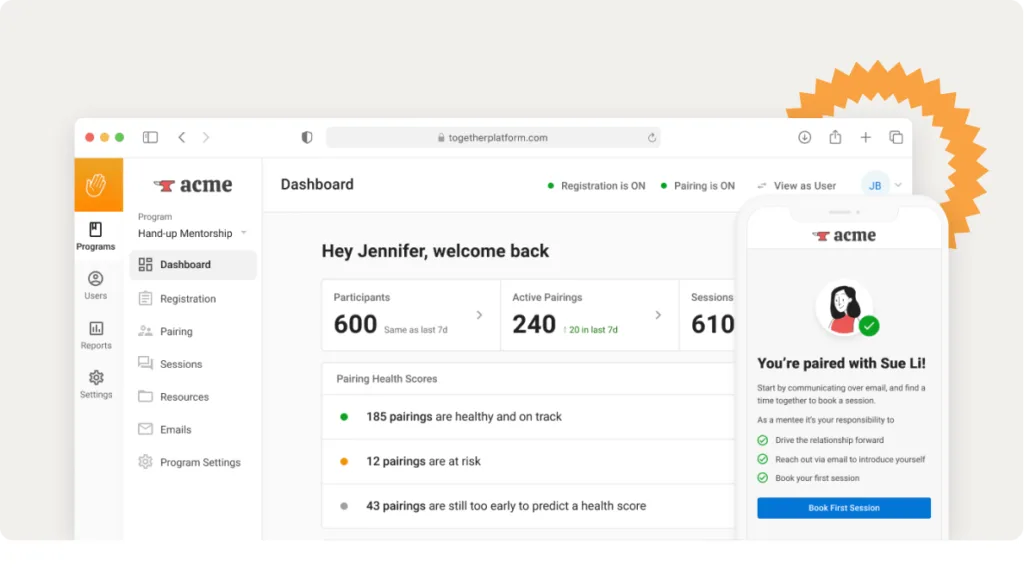
Together provides template-driven mentoring programs, intuitive matching, and support for running multiple programs simultaneously.
Key Features:
- Program Templates: Built-in best practices accelerate launch.
- Flexible Matching: Adjustable criteria to improve satisfaction with matches.
- Multi-Program Management: Operate leadership, onboarding, and ERG programs in parallel.
Best for: Large firms needing fast deployment and easy admin.
4. Qooper
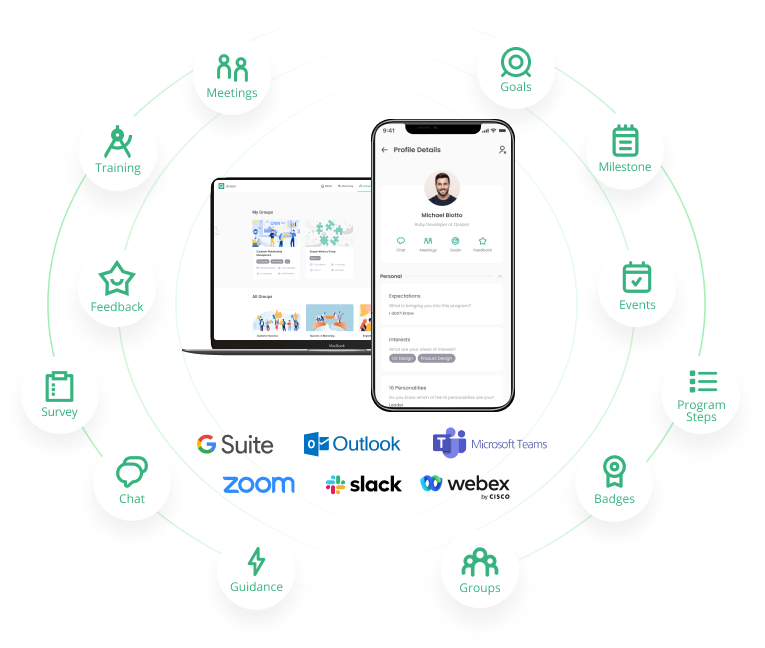
Qooper combines smart matching, training content, and analytics to scale mentoring, learning, and coaching.
Key Features:
- Smart Matching: Role, skills, and goals-based pairing at scale.
- Content & Check-Ins: Built-in guides and touchpoints to keep pairs on track.
- Program Analytics: Track activity and outcomes to refine programs.
Best for: HR and ERG teams seeking modular features with quick setup.
5. Guider
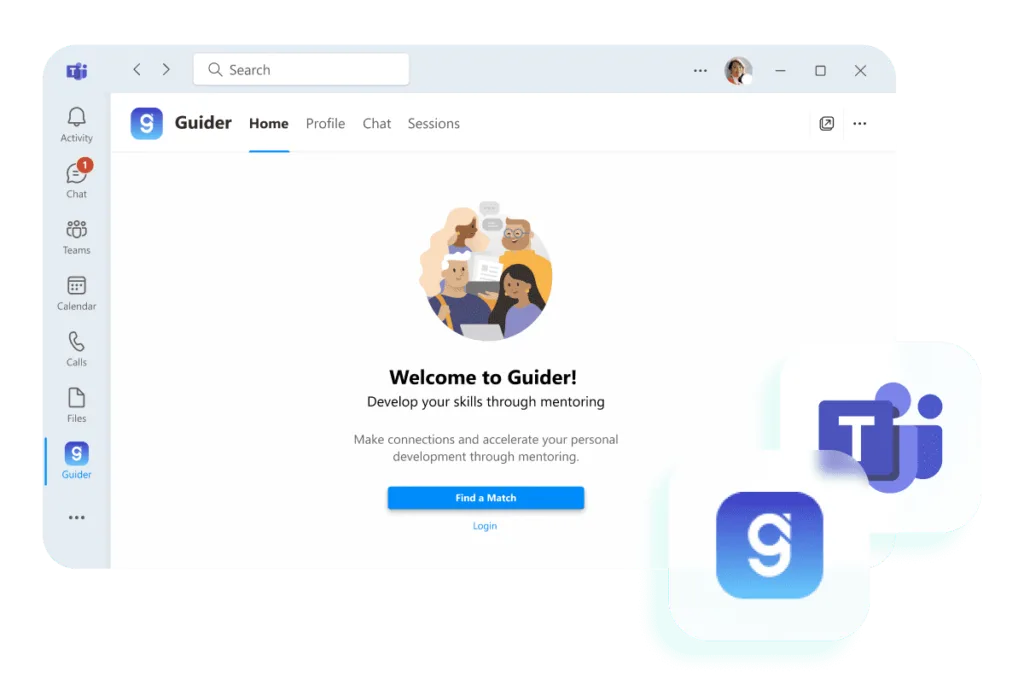
Guider focuses on enterprise mentoring across formats—1:1, reverse, group—and supports multi-program operations with a clean participant experience.
Key Features:
- Multi-Format Mentoring: Run coaching, buddying, sponsorship, and ERG mentoring.
- Scalable Admin: Manage single or multiple programs from one console.
- User Experience: Streamlined workflows to boost adoption.
Best for: Distributed enterprises running several mentoring models.
6. Mentorink
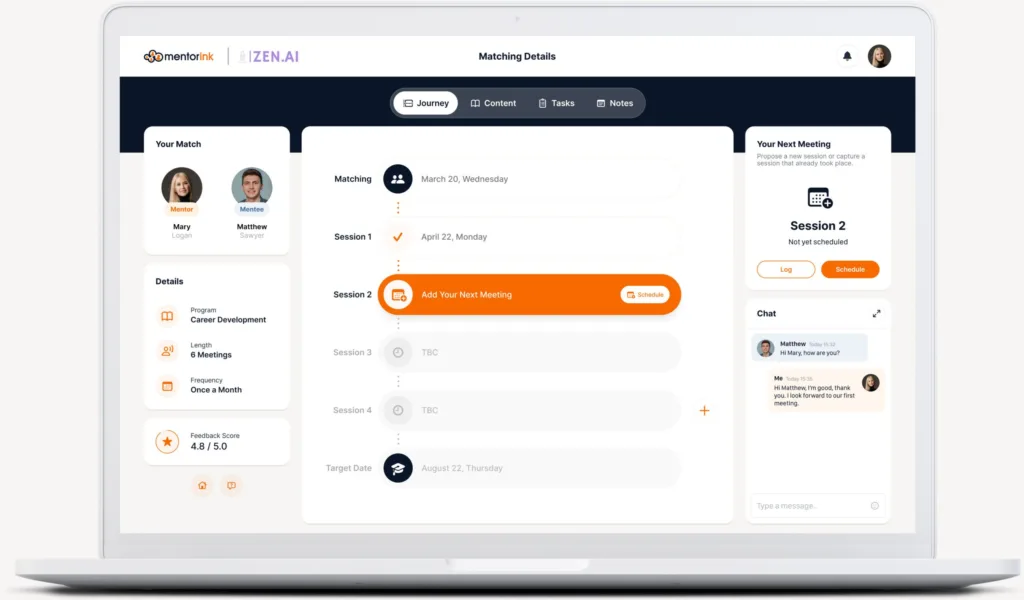
Mentorink supports HRIS/SSO integrations, matching, and reporting designed for workplace mentoring at scale.
Key Features:
- HRIS & SSO: Connects to major platforms for secure, automated access.
- Structured Matching: Configure mentor-mentee criteria for outcomes.
- Comprehensive Reporting: Visibility into participation and progress.
Best for: Enterprises standardizing mentoring across business units.
7. MentorCloud
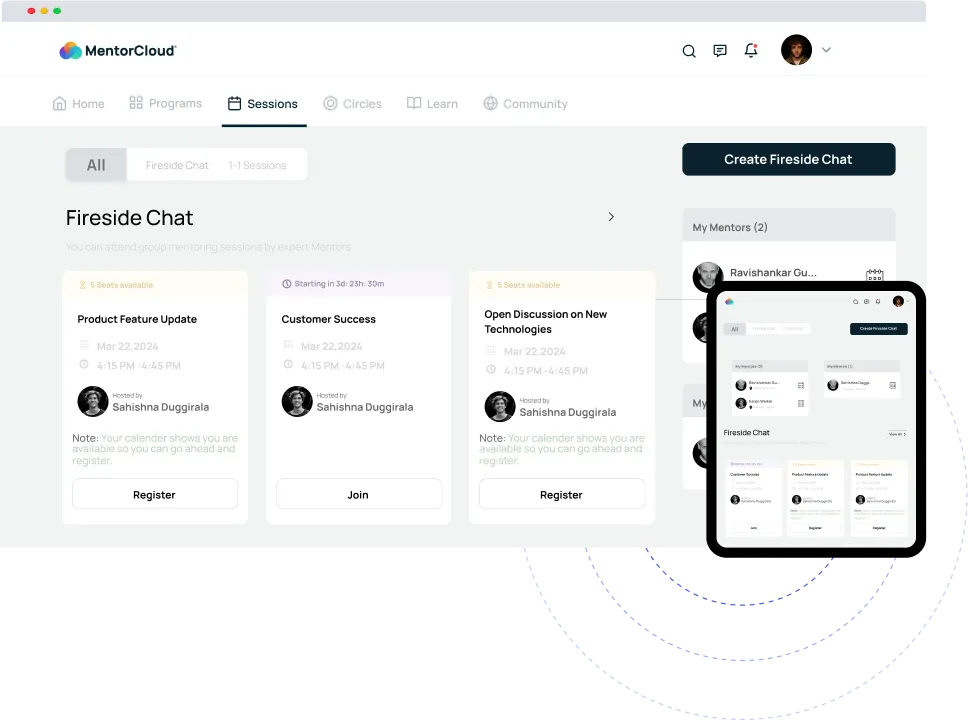
MentorCloud offers enterprise configurations and multiple mentoring modes with integrations and admin tools aimed at reducing manual tasks.
Key Features:
- Configurable Programs: Support 1:1, 1-to-many, and community mentoring.
- Enterprise Integrations & SSO: Aligns with HR systems and identity providers.
- Admin Automation: Tools to streamline design, recruitment, matching, and feedback.
Best for: Large organizations seeking community-driven mentoring at scale.
8. Ten Thousand Coffees
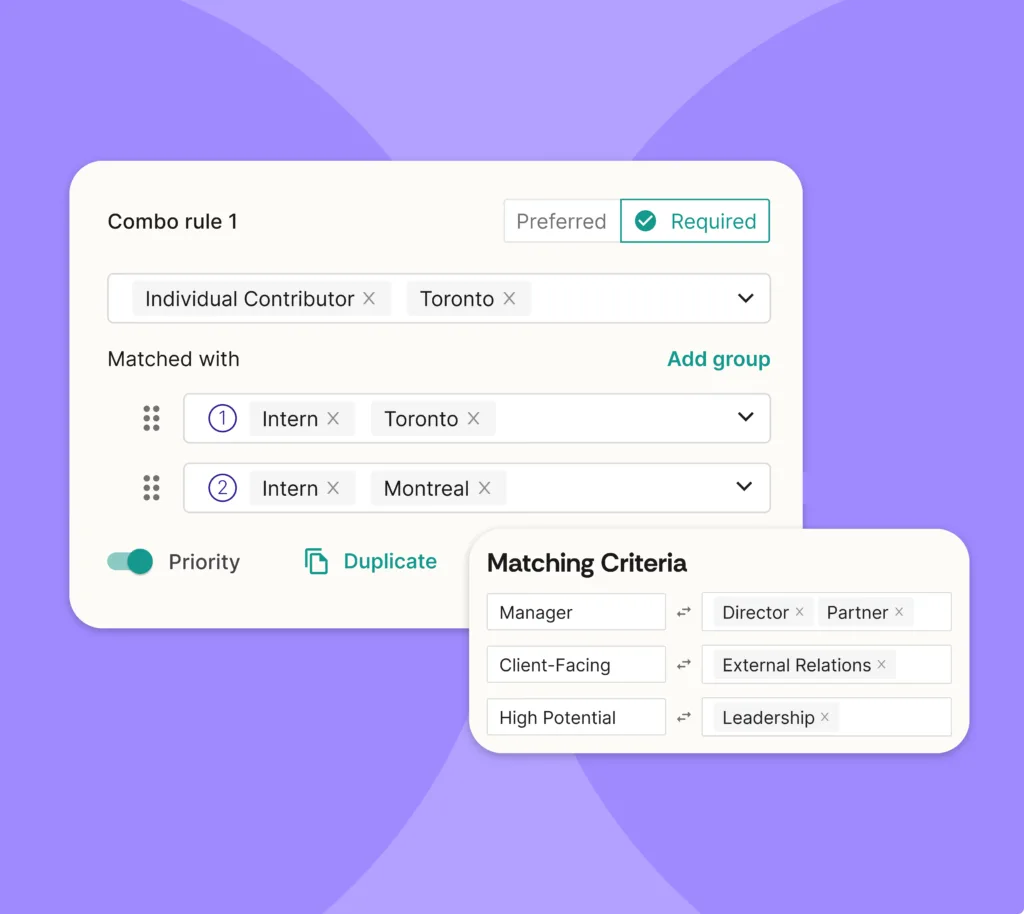
Ten Thousand Coffees combines mentoring pathways with automated matching and embedded nudges to power enterprise development experiences and measure outcomes like mobility and retention.
Key Features:
- Mentoring Pathways: End-to-end programs for specific talent groups.
- Built-In Guides & Nudges: Keeps sessions focused and consistent.
- Outcome Reporting: Tie mentoring to engagement and retention.
Best for: Enterprises emphasizing cohort-based pathways and internal mobility.
9. Torch

Torch focuses on leadership development with coaching and mentoring workflows, AI-supported insights, and enterprise privacy standards—useful for manager and leader pipelines.
Key Features:
- Leader-Focused Programs: Coaching and mentoring aligned to business goals.
- AI-Powered Insights: Aggregated themes to inform talent strategy.
- Data Protection: Controls for confidentiality and compliance.
Best for: Enterprises elevating manager and leadership capabilities.
10. People360 (Formerly known as Insala)
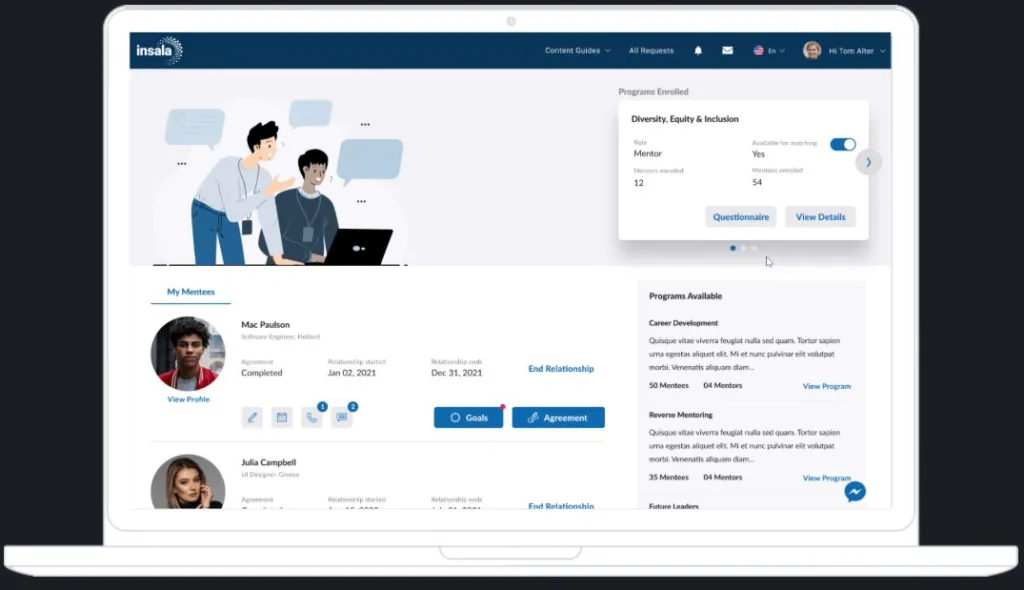
People360 provides a comprehensive mentoring solution with algorithmic matching, automated communications, and data-driven reporting—plus advisory services when needed.
Key Features:
- Algorithmic Matching: Criteria-based pairing for scale.
- Automated Communications: Reduce manual follow-ups and reminders.
- Reporting: Track activity and progress across cohorts.
Best for: Enterprises that want software plus consulting support.
Benefits of Mentoring Software
In today’s competitive technology landscape, retaining top talent and accelerating leadership development are critical to long-term success. Mentoring software gives tech organizations the structure, scale, and insight needed to make mentoring relationships truly impactful. By combining automation with analytics, these platforms simplify administration, support DEI and ERG goals, and connect mentoring outcomes directly to business performance.
Accelerate Leadership and Technical Pipelines
For large tech firms, mentoring speeds readiness for manager, staff engineer, and product leadership roles. Software standardizes matching and milestones so leaders see faster time-to-productivity and clearer succession pipelines.
Improve Retention and Internal Mobility
Mentoring strengthens belonging, clarifies career paths, and increases cross-team visibility—key drivers of stay decisions and internal moves. Enterprise platforms let you quantify movement and retention deltas tied to participation.
Reduce Administrative Load
Templates, automated enrollment, SSO, and nudges replace spreadsheets and email threads. Program owners spend less time coordinating and more time partnering with ERGs and business leaders.
Strengthen DEI and ERG Outcomes
Mentoring supports access to networks and sponsorship for under-represented talent. Admin controls help ERGs run targeted programs with meaningful reporting for executives.
Prove Impact with Executive-Ready Analytics
Dashboards connect participation, activity, valuable insights, and feedback to outcomes like promotion rates, mobility, and attrition risk—making ongoing investment easier to justify.
Moving from Exploration to Rollout
For enterprise technology leaders, the mandate is clear: scale mentoring without adding operational burden. Start by piloting two programs—e.g., new-manager mentoring and a staff-engineer pathway—then expand to ERGs and onboarding once your data model and integrations are stable.
If you want a faster route with lower admin, our team can help configure matching, templates, and reporting tuned to your tech stack and security standards.
Book a Demo with MentorcliQ to learn how your organization can build stronger, scalable mentoring programs.



